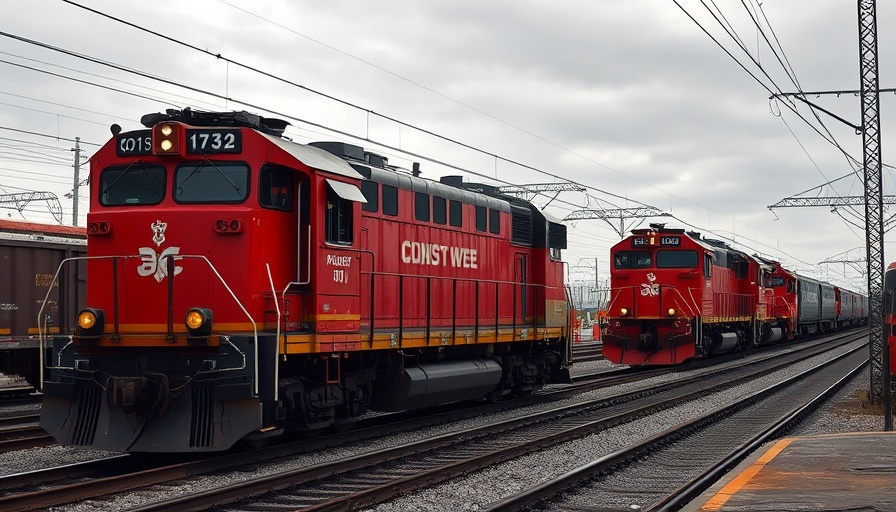
CPKC's Imperiled Predictions: Navigating Trade Turbulence
Calgary-based Canadian Pacific Kansas City Ltd. (CPKC) has made headlines by adjusting its financial forecast amid considerable uncertainty surrounding U.S. tariffs and trade policies. Originally projecting an increase in adjusted diluted earnings per share of 12 to 18 percent for the year, CPKC has now scaled this back to a more conservative range of 10 to 14 percent. This shift reflects both the immediate impacts of current economic conditions and the longer-lasting effects of geopolitical tensions.
Financial Health Despite Adjustments
Interestingly, the company’s downward revision comes despite a notable surge in net income during the latest fiscal quarter. CPKC reported a 17 percent increase in net income, totaling $909 million compared to $774 million during the same period last year. Moreover, CPKC’s revenue climbed by 8 percent, reaching $3.80 billion from $3.52 billion.
Trade Policy’s Ripple Effect on the Economy
These adjustments at CPKC are not isolated; they resonate throughout the broader Canadian economy. Recent data from Statistics Canada indicated an unexpected contraction in February, influenced by deceleration in critical sectors such as mining, oil and gas, and construction. The ongoing evolution of trade agreements and fiscal policies could serve as a decisive factor in determining the overall economic climate, especially as uncertainties loom regarding U.S. tariffs.
Supply Chain Implications and Economic Outlook
As a key player in North America's rail network, CPKC's forecasts carry weight, not just for its stakeholders, but also for the industries relying on its transportation services. The revised earnings outlook may compel regional shippers to reassess their transportation strategies, particularly those dependent on rail services for supply chain stability. With the specter of trade escalations lingering, businesses are left to ponder how these shifts will affect their operational costs and logistics planning in the upcoming months.
Counterarguments: The Silver Lining Amid Challenges
Despite the grim forecasts, some experts caution against an overly pessimistic view. Reevaluating trade practices can lead to opportunities for cost savings and performance enhancements. Fostering new partnerships and diversifying supply sources may mitigate the adverse effects predicted from tariff volatility. Hence, while CPKC's financial adjustments indicate challenges, they also emphasize a time of potential strategic shifts across various sectors.
The Future of American-Canadian Trade Relations
Looking ahead, analysts ponder the long-term implications of continuing trade negotiations and the potential overhaul of existing agreements. The proximity of economic collaborations suggests that both American and Canadian businesses may benefit from refining their operational frameworks in response to these changing dynamics. CPKC's decisions, influenced by these larger trends, are indicative of an environment where adaptability and resilience will be paramount.
Decisions and Directions: Articulating a Response
Investors and businesses that engage with CPKC must now navigate a landscape shaped by both immediate financial realities and broader economic forecasts. It is essential for companies to remain vigilant, monitoring trade policy developments closely, understanding tariffs' effects, and adjusting projections accordingly. Ideally, this period of uncertainty serves as a clarion call for proactive financial planning, enabling businesses to prepare for potential economic shifts.
Engagement and Community Response
Local communities should glean insights from CPKC's evolving narrative. The interdependence of infrastructure and economic performance remains critical, as shifts in the transport sector can have cascading effects on local economies. Mobilizing community support for public policies that foster stable trade relations may yield long-term benefits for all stakeholders.
In summary, while CPKC's lowered forecast highlights immediate concerns related to trade, it also presents an opportunity for strategic reevaluation. Stakeholders across the board should approach these challenges with a blend of caution and innovation. By leveraging insights from CPKC’s experience, businesses may enhance their adaptability to the ever-evolving economic landscape.
 Add Row
Add Row  Add
Add 




Write A Comment